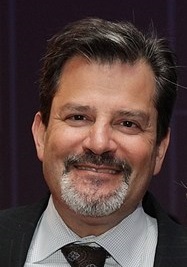Monday July 12, 2021 –
Thursday July 15, 2021
8:00am-12:15pm
JUL 12 – 15, 2021
Internal Medicine: A Primary Care Approach to Hospital Medicine and Rheumatology
Event Details
When
Where
Hyatt Regency Mission Bay Spa and Marina
San Diego, California
Event Code
SEMLA-3220180528
Course Topics
Day 1
Practical Approach to the Patient with Hypertension.
Upon completion of this session, using multiple research trials as well as the current JNC recommendations, the participant should be able to: GL, COMP
- Apply the current JNC recommendations for treatment of hypertension.
- Develop a rational approach to choosing medication in treating hypertension.
- Decide when and how to evaluate for secondary causes of hypertension.
Practical Approach to the Patient with Potential DVT.
Upon completion of this session, using multiple research trials as well as applying recommendations from the ACCP, AAFP/ACP, and the AHA/ACC, the participant should be able to: GL, COMP
- Obtain an appropriate medical history to better identify those patients at risk.
- More confidently evaluate and assess the patient suspected of having DVT.
- Better manage patients with the confirmed diagnosis of DVT.
Practical Approach to the Patient with Hyperlipidemia.
Upon completion of this session, using multiple research trials as well as the recommendations of the NCEP, the participant should be able to: GL, COMP
- Apply the current NCEP guidelines.
- Develop a practical approach for considering the new medications available.
- Consider the new targets developed for cholesterol end point.
Approach to the Patient with Rheumatic Diseases.
Upon completion of this session, the participant should be able to: GL, EBM, COMP
- Demonstrate the importance of the history and physical exam including patterns of joints involvement and extra-articular findings in evaluating patients with rheumatic diseases.
- Distinguish inflammatory (i.e. rheumatoid arthritis) and structural arthritis (i.e. osteoarthritis).
- Differentiate patterns of articular involvement associated with different arthritides.
- Utilize laboratory and radiological studies in the evaluation of patients with rheumatic diseases.
Lyme Disease and Other Topics in Rheumatology.
Upon completion of this session, the participant should be able to: EBM, GL, COMP
- Apply CDC and Infectious Diseases Society of America Guidelines for the diagnosis, treatment, and prevention of Lyme disease.
- Evaluate skin rashes as manifestations of systemic diseases.
- Using the Guidelines of the Bone Research Society of the United Kingdom to prescribe appropriate therapy for patients with Paget’s disease of the bone.
Day 2
Crystal Arthritis.
Upon completion of this session, the participant should be able to: GL, COMP
- Demonstrate the clinical presentations and manifestations in the course of gout.
- Monitor and prescribe treatment for patients with gout according to the EULAR and ACR recommendations and guidelines.
- Demonstrate the clinical presentations, manifestations, and treatment of calcium pyrophosphate deposition disease (CPPD) and pseudogout.
Rheumatoid Arthritis.
Upon completion of this session, the participant should be able to: GL, COMP
- Demonstrate the role of genetics, environmental factors, immune cells, and proinflammatory cytokines in the pathogenesis of rheumatoid arthritis.
- Illustrate the clinical features, extra-articular manifestations, and complications of rheumatoid arthritis.
- Utilize and compare various methods of measuring disease activity in rheumatoid arthritis.
- Compare and contrast the mechanisms of action of current and emerging therapies for RA and prescribe treatment for patients with rheumatoid arthritis according to ACR guidelines.
Scleroderma and Raynaud’s Disease.
Upon completion of this session, the participant should be able to: GL, COMP
- Specify the clinical manifestations of scleroderma.
- Apply the ACR/EULAR classification criteria for systemic sclerosis.
- Utilize treatment available for symptomatic manifestations as per the current EULAR recommendations.
- Apply the diagnostic work-up and treatment of Raynaud’s phenomenon.
Practical Approach to the Patient with Diabetes.
Upon completion of this session, using multiple research trials as well as recommendations from the ADA, EASN, AGA, CDA, AACE, ACP, and the AAFP, the participant should be able to: GL, COMP
- Consider this primer on management.
- Distinguish the patient who is likely to go on to develop complications and appreciate the potential long-term course.
- Apply the current guidelines for therapy and access the anticipated outcome goals.
Practical Approach to the Patient with Headache.
Upon completion of this session, while applying recommendations from the IHC, NHF, AAFP, AAN and ACP, the participant should be able to: GL, COMP
- Review the differential diagnosis of a patient presenting with the complaint of headache.
- More confidently evaluate the patient with headache and appreciate the indications for imaging.
- Develop a treatment plan that considers lifestyle changes as well as medications.
Day 3
Practical Approach to Thyroid Disease:
1. Hypothyroidism/Elevated TSH
2. Patient with a Thyroid Nodule.
Upon completion of this session, by applying recommendations from the AAFP, AACE, ACP, ATA, USPSTF, IOM, and ACOG, the participant should be able to: GL, COMP
- Appreciate the role of the screening TSH and what to do with the results.
- Develop a reasonable and cost-effective approach to diagnosing the thyroid nodule.
- Discuss the management of hypothyroidism.
Practical Approach to the Patient with Dementia.
Upon completion of this session, while applying recommendations from the AAN and the USPSTF, the participant should be able to: GL, COMP
- Formulate a practical approach to screening for dementia.
- Discuss medication management to include polypharmacy, drug-drug interactions, as well as new drugs and their potential efficacy and side effects.
- Develop a long-term follow-up and referral process that considers cost-effective and resource management.
Spondyloarthropathies.
Upon completion of this session, the participant should be able to: EBM, COMP
- Distinguish the clinical features of the different spondyloarthropathies to improve diagnostic accuracy.
- Utilize clinical features, laboratory studies, and radiological studies to make a diagnosis of axial spondyloarthropathy.
- Prescribe pharmacologic agents according to ACR and EULAR recommendations and evidence-based results from clinical trials for patients with spondyloarthropathies.
Septic Arthritis.
Upon completion of this session, the participant should be able to: GL, EBM, COMP
- Determine the risk factors associated with septic arthritis.
- Utilize the British Society of Rheumatology Guidelines for management of the hot swollen joint in adults to differentiate septic arthritis from other causes of acute monoarticular arthritis.
- Utilize epidemiological and clinical clues to determine bacterial etiology in patients with septic arthritis.
Common Cases Walking Through Your Office Door.
Clinical Cases will be solicited throughout the week from the participants. These cases will be selected and managed by the presenters. Diagnoses, next steps in management and expected clinical outcomes will be discussed. The format will include panel discussion and audience participation.
Hotel Reservations
We are currently reserving a room block for attendees. We have negotiated significantly reduced rates for our guests! To arrange your stay, please use the above “Hotel Reservation Link.” The special room rate will be available on a first come first serve basis until the group block is sold-out.
Rent a Car with Enterprise or National:
To book your CME conference car rental and to receive special rates exclusively for AMS attendees, you may call or book online with our contracted companies, Enterprise Rent-A-Car or National. To receive exclusive rates, use the code listed below.
Group Discount Code – Corp #XZ35AMS
About the Venue
Hyatt Regency Mission Bay Spa and Marina
San Diego, California
Outdoor pools, waterslides, and easy access to watersports and other activities at the marina make this Hyatt Regency ideal for outdoor recreation. A fitness center, spa, and other thoughtful amenities are also available.
Presented By

Lawrence Brent
Professor of Medicine, Division of Rheumatology, Department of Medicine, Lewis Katz School of Medicine at Temple University, Philadelphia, PA

David Horowitz, MD
Professor of Clinical Medicine, Perelman School of Medicine at the University of Pennsylvania; Associate Chief Medical Officer, University of Pennsylvania Health System; Philadelphia, PA
Accreditation
Webinar Details
Live Webinar Access Information:
Webinars are held via zoom and the Wednesday prior to the conference start date, an email will be sent with the zoom link.
Cancellation & Refund Policy
We understand that plans may change. Please review our cancellation and transfer options below:
30+ Days Before Conference Start Date
- Refund: Full refund minus a $50 processing fee.
- Transfer: Registrations can be transferred once, at no cost, to another conference within two years. Alternatively, registration may be placed “on hold” for up to 12 months, allowing participants to choose a suitable conference for transfer within that period.
Less Than 30 Days Before Conference Start Date
- Refund: No refunds available.
- Transfer: Registration may be transferred to another conference within 2 years at no cost. Alternatively, registration may be placed “on hold” for up to 12 months, allowing participants to choose a suitable conference for transfer within that period.
Additional Notes
- No-shows are non-refundable and non-transferable.
- If we cancel a conference, you may choose a full refund or transfer to another event.
On-Demand Courses
- All sales are final. No refunds or transfers.
Invitation Letters
If American Medical Seminars issued you an Invitation Letter to attend a CME conference in the United States and you need to cancel your registration, we will only refund 50% your registration fee. This is to cover the cost of your Invitation Letter and processing costs. By registering, you agree to the non refundable portion of the registration.
Disclaimer
In the event that AMS is required to cancel a live conference, registrants will receive a full refund within 7 business days. AMS is not responsible for charges associated with cancelled flights or hotel rooms.
How to Request a Cancellation or Transfer
Requests must be submitted in writing to mail@ams4cme.com or by calling 1-800-267-4263.
Note: By registering, you agree to this policy.


